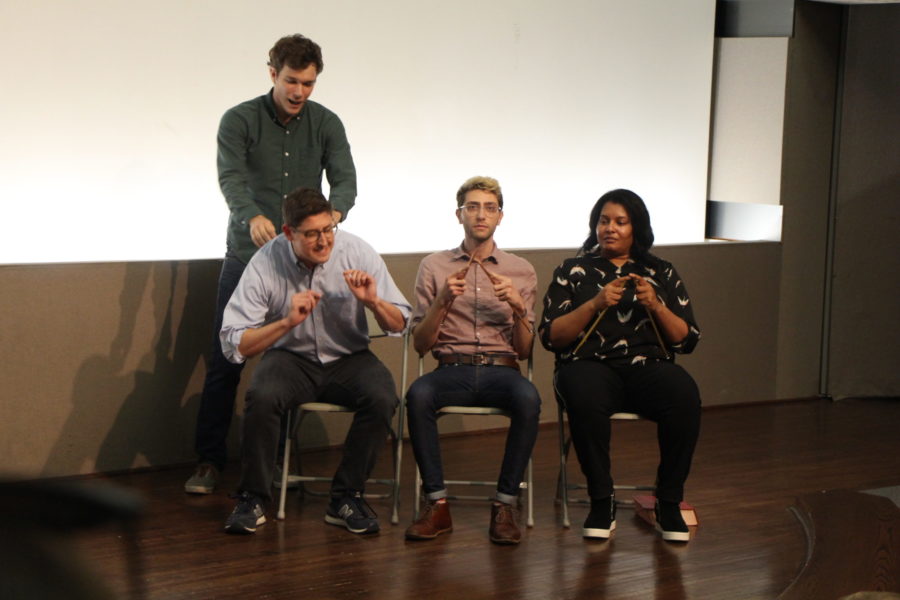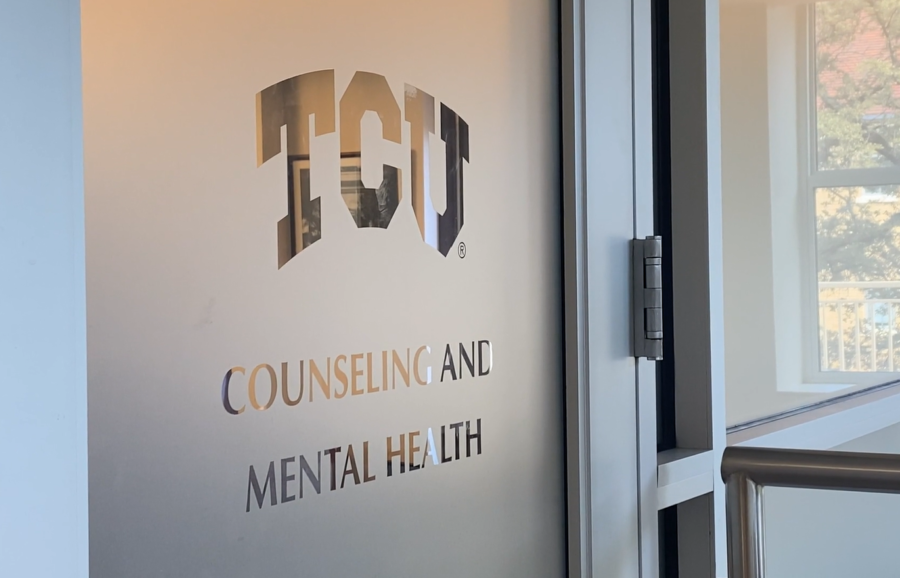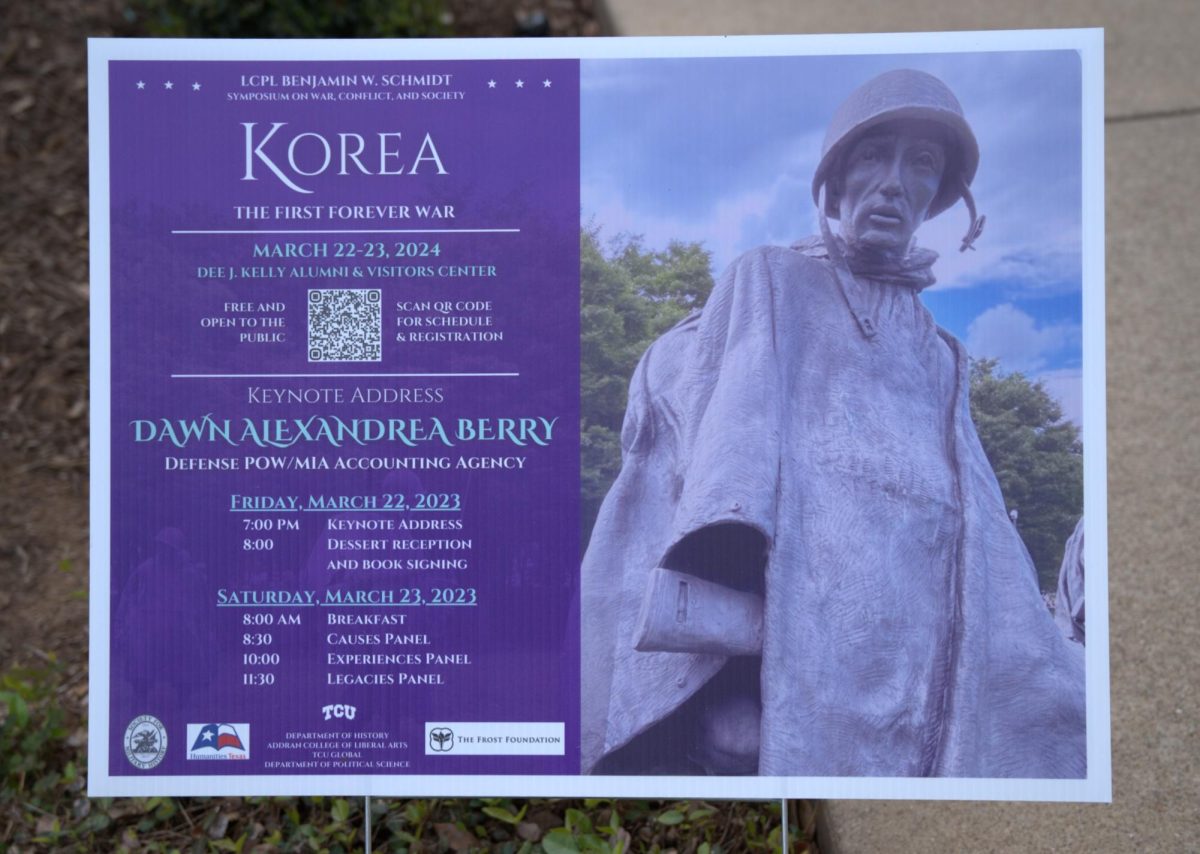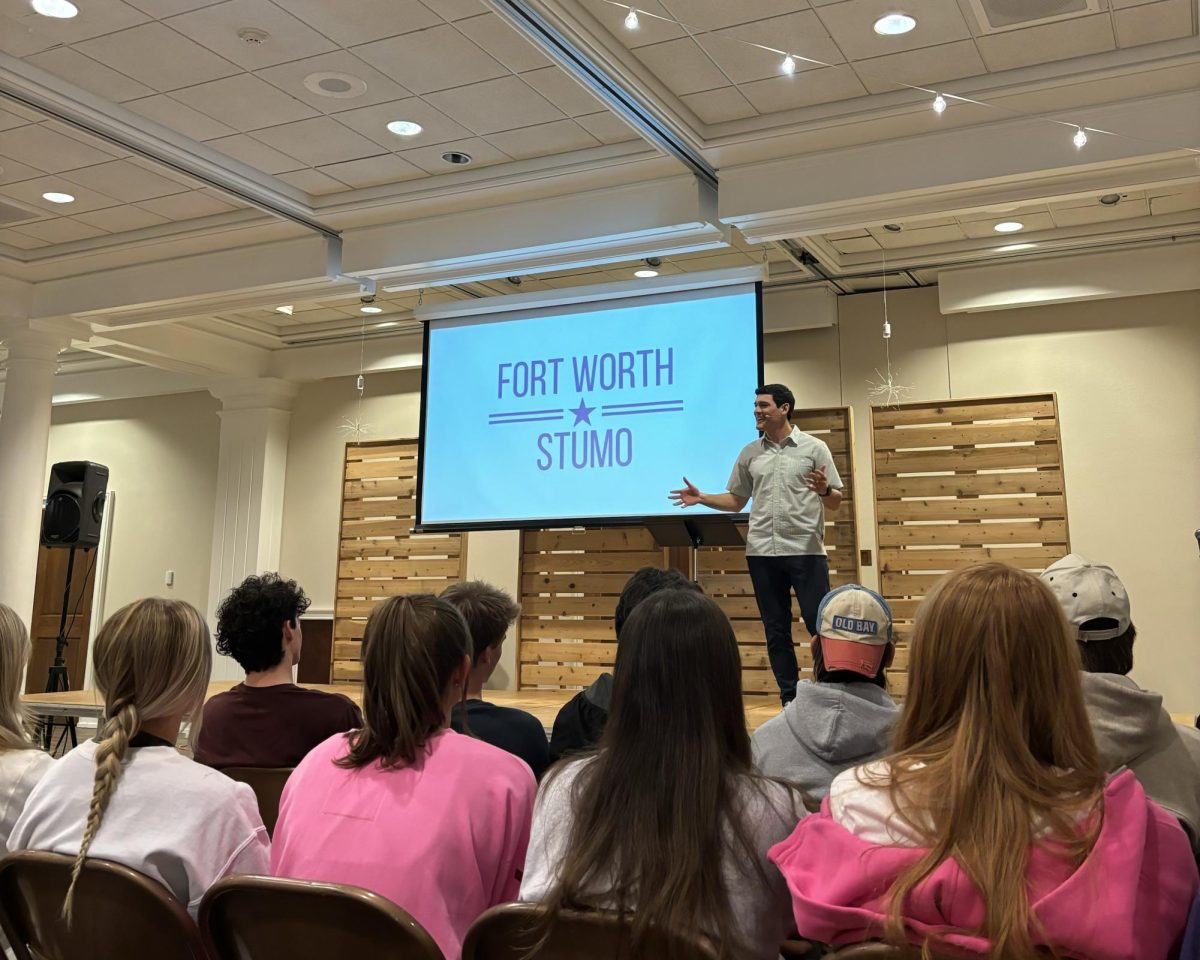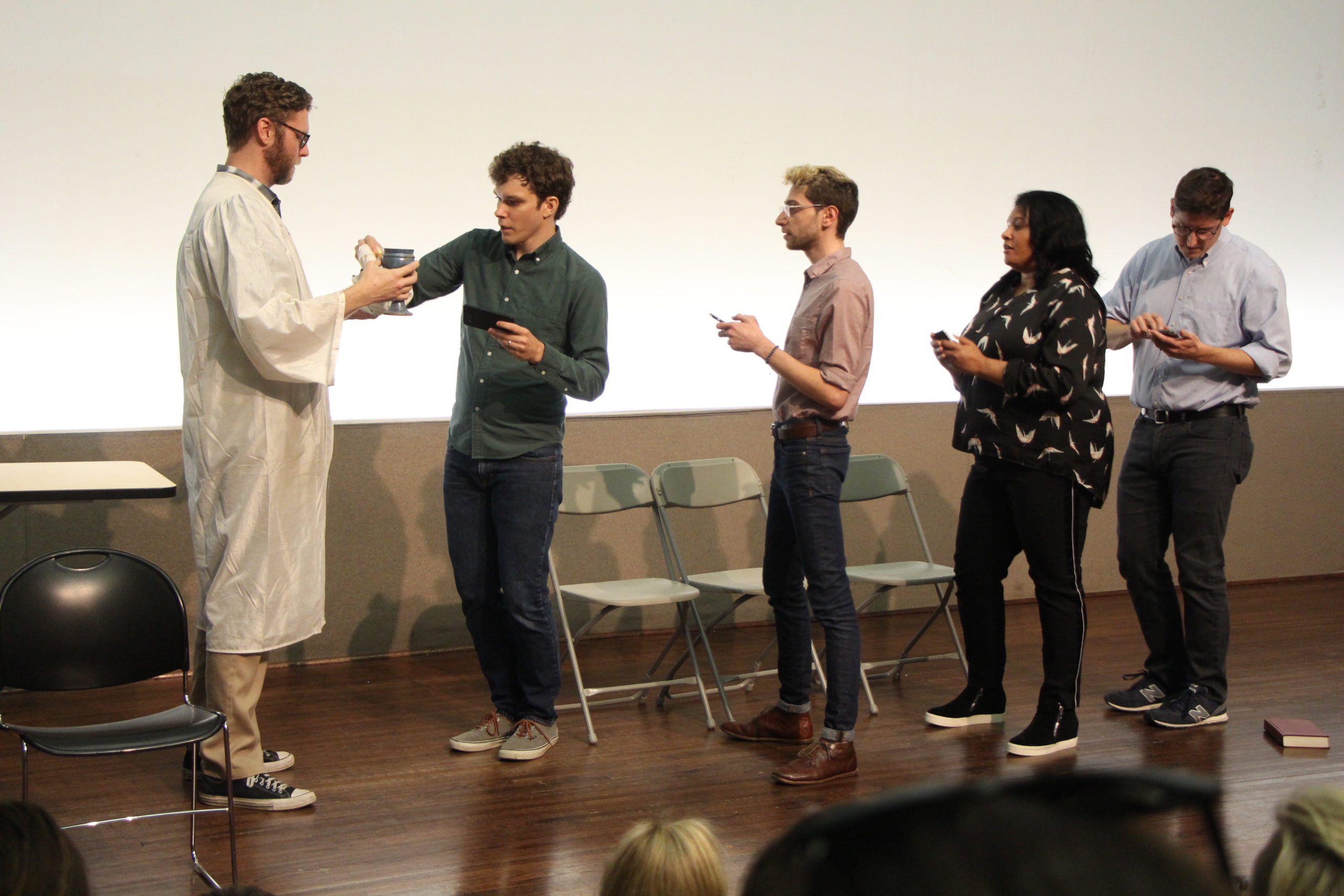
The SketchCo comedy team used humor Tuesday night to encourage people to examine the common threads of their religious views rather than focus on differences.
A crowd of about 140 people – students, faculty and community members – filled the auditorium in Moudy North to learn how to be respectful when blending humor and religion. The comedians based their six scripted sketches on common actions and religious beliefs.
Britt Luby, the coordinator of the Crossroads Lecture on Faith and Public Life, said talking across differences is important for religious people to realize what they have in common with each other.
A recent Pew Research Center analysis created a new typology for religious groups in America, categorizing adults into seven groups based on characteristics such as shared beliefs, how actively they practice their spiritual tradition and how much value they place on their religion.
While factors such as political orientation, race and ethnicity were not used to group the participants, the results indicate that some groups have specific demographic profiles and political orientations, showing the connections between religion, politics and race and highlighting the conflict among and within religious groups in America.
Censoring what is mentioned in public or trying to simply change jokes to fit current standards of what is appropriate are not permanent solutions to deciding what should be the foundation for humor, said SketchCo writer-actor Ben Fort. If people base their humor on the fact that individuals are inherently valuable, they will not have to change their comedy over time.
The first sketch, titled “Pardon Me,” made fun of people who use social media to point out and correct errors in other people’s beliefs and who stubbornly refuse to acknowledge the validity in anyone else’s ideas.
In another sketch, a man walked into a belief store to return some of the beliefs he received from his parents. The man ultimately left the store with the idea that one should treat others with love, recognizing that he would also have to love himself.
Mark Schatzman, 59, said the belief store sketch was most striking to him because it made him reflect on which of his parents’ beliefs he was still carrying.
Five of the sketches were performed live, one was on video. In the clip, a Syrian immigrant to the United States working as a Lyft driver narrated a passenger conversation.
The driver reflected on the passenger’s lack of knowledge about the driver’s religion and culture based on racist and Islamophobic comments made by the passenger.
In the question and answer session that followed the show, the members of SketchCo talked about how important it is to approach conversations about religious matters with a desire to learn, not with an attitude of aggression.
First-year student Jessica Webba said the event showed her that she needed to question why she laughs at jokes because comedy can sometimes be hurtful.



